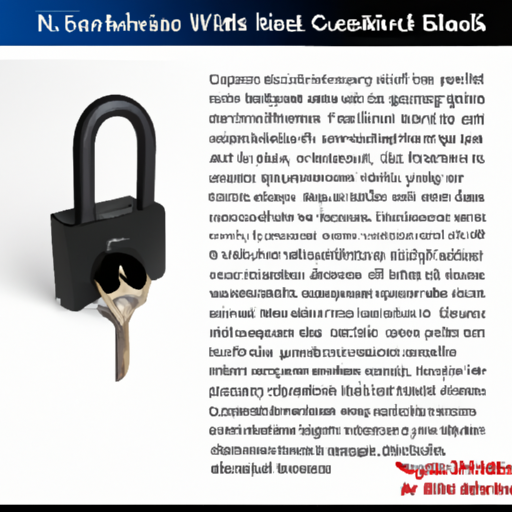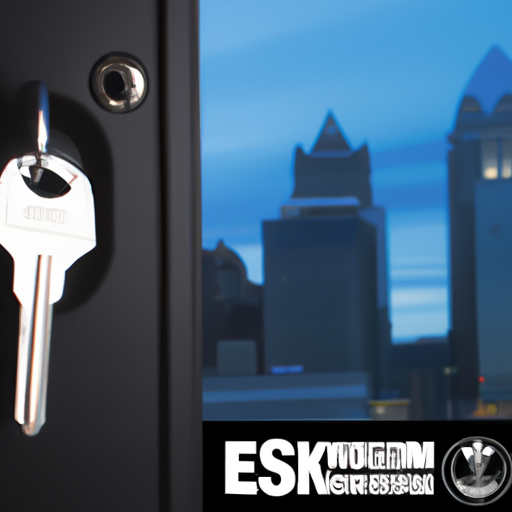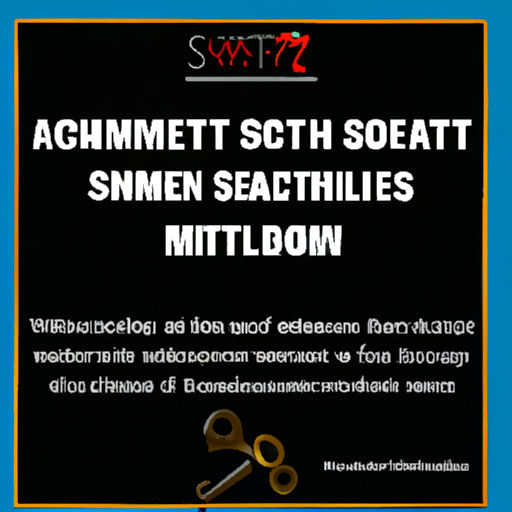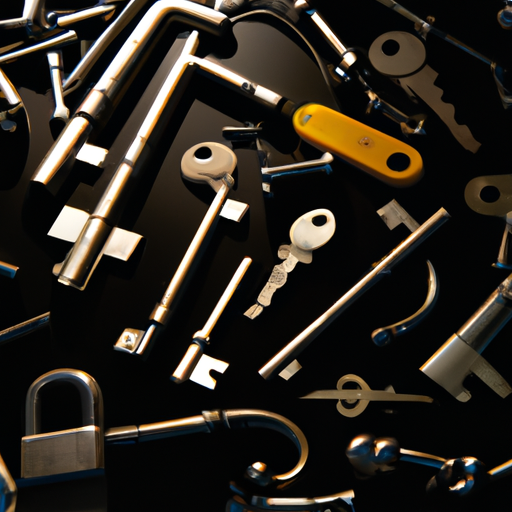
If you find yourself in a situation where your lock is spinning freely, don’t panic. This article will provide you with some helpful tips on what to do next. You’ll learn about possible causes for the lock spinning freely, as well as steps you can take to troubleshoot and resolve the issue. By the end, you’ll feel more confident in handling this situation and be able to secure your lock properly. So, let’s get started and find a solution for your spinning lock! If you find yourself in a situation where your lock is spinning freely and not functioning properly, don’t panic. This issue can be fixed with the right diagnosis and proper handling. In this article, we will discuss the common causes of a lock spinning freely, how to diagnose the issue, and the steps you can take to fix it. We will also provide some preventive measures to ensure this problem doesn’t occur in the future.
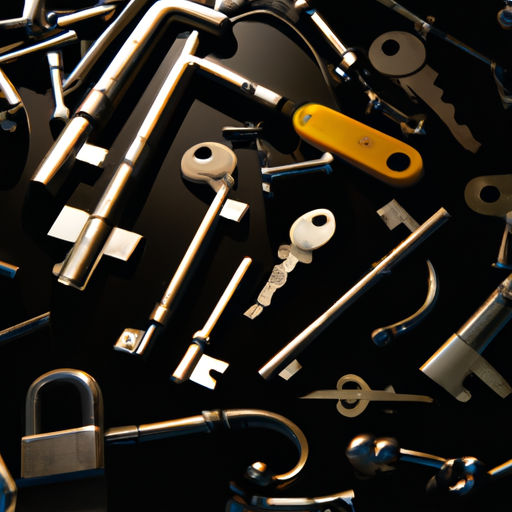
Causes of a Lock Spinning Freely
Worn Out Key
One of the most common causes of a lock spinning freely is a worn-out key. Over time, the teeth of a key can become worn down or damaged, preventing it from engaging properly with the lock mechanisms. When this happens, the key is unable to turn the lock cylinder and the lock ends up spinning freely.
Broken Springs
Another possible cause of a lock spinning freely is broken springs within the lock mechanism. Springs are essential components that help to provide tension and pressure when turning the key. If a spring breaks or becomes weak, it can result in the lock cylinder being unable to grip the key properly, causing it to spin freely.
Misaligned Keyway
A misaligned keyway can also cause a lock to spin freely. The keyway is the groove or channel in the lock cylinder where the key is inserted. If the keyway is misaligned, the key may not be able to fully enter the cylinder or engage with the internal mechanisms. As a result, the lock will spin freely rather than turning and unlocking.
Diagnosing the Issue
Before attempting to fix a lock that is spinning freely, it is important to diagnose the root cause of the problem. This will help ensure that you apply the appropriate solution for the specific issue at hand. Here are two steps you can take to diagnose the problem:
Checking for Physical Damage
Inspect the key for any signs of physical damage, such as worn-down or damaged teeth. Examine the lock cylinder as well, looking for any obvious signs of wear or misalignment. Physical damage to the key or lock may indicate the cause of the spinning lock.
Verifying Key Functionality
Try using the key in another lock to see if it functions properly. If the key works fine in another lock, it confirms that the issue lies with the lock itself and not the key. However, if the key doesn’t work in any lock, it is likely that the key is the problem and needs to be replaced.
Fixing a Lock That Spins Freely
Once you have identified the cause of the spinning lock, you can proceed with the appropriate solution. Here are the steps you can take to fix a lock that is spinning freely:
Replacing the Key
If the key is worn out or damaged, the best solution is to replace it. Visit a locksmith or hardware store to have a new key made. Make sure to provide them with the key code or the lock itself to ensure an accurate duplicate is made. Once you have the new key, try it in the lock to see if the spinning issue is resolved.
Repairing Springs
If broken or weak springs are causing the lock to spin freely, you will need to repair or replace the springs. This requires some knowledge and skill, so it may be best to leave this task to a professional locksmith. They can assess the condition of the springs and either repair or replace them as needed.
Realignment of Keyway
If a misaligned keyway is the cause of the spinning lock, you can try realigning it yourself. Use a screwdriver to remove the lock cylinder from the door. Carefully adjust the keyway to ensure it is aligned properly with the key. Once you have made the necessary adjustments, reinsert the lock cylinder and test the lock to see if the spinning issue is resolved.
Tools and Materials Required
To fix a lock that is spinning freely, you will need the following tools and materials:
- Screwdriver: This will be needed to remove the lock cylinder from the door and make any necessary adjustments.
- Replacement Key: If the key is worn out or damaged, a replacement key will be required.
- Springs: In the case of broken or weak springs, you may need to obtain replacements to repair the lock.
- Pliers: Pliers can be helpful for removing and replacing springs, if necessary.
- Lubricant: A lubricant, such as graphite or silicone spray, can be used to help the lock mechanism move smoothly and prevent future issues.

Step-by-Step Guide
Here is a step-by-step guide to fixing a lock that is spinning freely:
- Inspecting Key for Damage: Examine the key for any signs of wear or damage. If necessary, replace the key with a new one.
- Removing and Replacing Springs: If broken or weak springs are causing the lock to spin freely, consider contacting a professional locksmith for assistance with repairing or replacing the springs.
- Adjusting Misaligned Keyway: If the keyway is misaligned, use a screwdriver to remove the lock cylinder from the door. Carefully adjust the keyway to align it properly with the key. Reinsert the lock cylinder and test the lock to see if the spinning issue has been resolved.
Preventive Measures
To avoid encountering a lock that spins freely in the future, consider implementing the following preventive measures:
Regular Key Maintenance
Ensure that your keys are clean and free from debris. Regularly inspect your keys for signs of wear or damage and replace them as necessary. By taking care of your keys, you can prevent them from causing issues with your locks.
Proper Handling of Keys
Handle your keys with care and avoid subjecting them to excessive force or rough treatment. Avoid using excessive pressure when turning the key in the lock, as this can lead to damage and potential spinning issues.
Seeking Professional Help
If the DIY methods outlined above are unsuccessful in fixing the lock that spins freely, it may be time to seek professional help. Here are some instances where contacting a locksmith is recommended:
When DIY Doesn’t Work
If you have attempted to fix the spinning lock yourself but have been unsuccessful, it is best to contact a locksmith. They have the expertise and tools necessary to diagnose and fix the issue correctly.
Calling a Locksmith
If you are uncomfortable or unsure about performing any of the steps mentioned above, it is best to call a locksmith from the start. They can assess the situation and provide the necessary repairs or replacements to get your lock functioning properly.
Common Mistakes to Avoid
When dealing with a lock that is spinning freely, there are a few common mistakes to avoid:
Using Excessive Force
Attempting to force the lock to turn by applying excessive pressure can lead to further damage. This can make the problem more difficult and expensive to fix. Instead, opt for gentle and controlled movements when using the key.
Ignoring Key Maintenance
Neglecting to properly maintain your keys, such as cleaning them regularly, can lead to issues with your locks. Make sure to inspect your keys for any signs of wear or damage and replace them as needed.
Conclusion
If your lock is spinning freely, it is important to take prompt action to address the issue. By identifying the cause and applying the appropriate solution, you can restore the functionality of the lock and improve its lifespan. Remember to practice preventive measures, such as regular key maintenance and proper handling, to prevent future spinning lock issues. And if all else fails, don’t hesitate to seek professional help from a locksmith to ensure the security of your lock and property.
